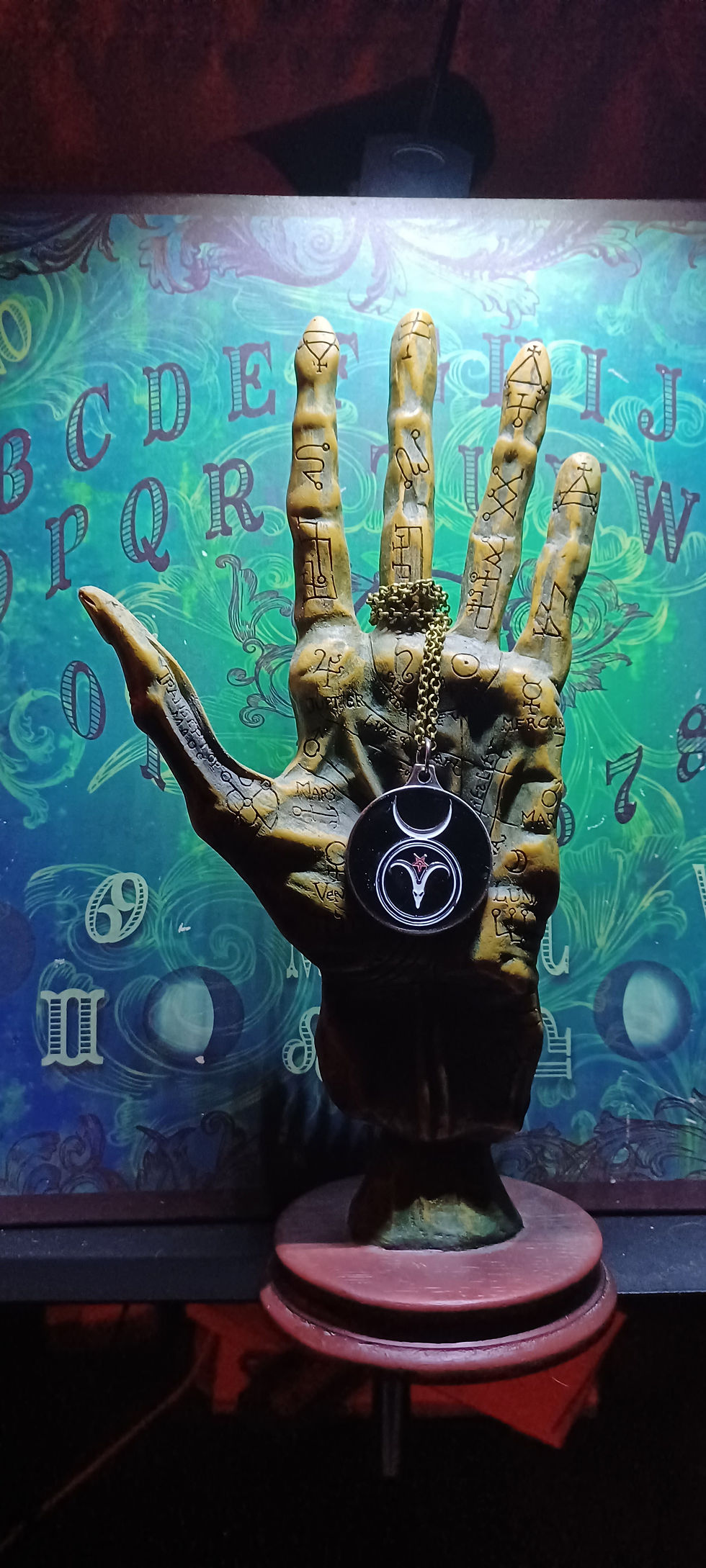ALLAH'S ABYSS: Unveiling Islam's Dark Paths Pt 1"
- Etu Malku

- Jul 8, 2024
- 4 min read
From THE BOOK OF HOWLING IN THE DESERT NIGHT
Kitab Aleawa' Fi Laylat Alsahra' by 'Amir Alzzalam

Deeply entrenched within its essence, the word "Islam" itself carries the weight of submission to Allah, while its foundation rests upon the sacred principle of "Shahadah" - the declaration that there is no god but Allah, and Muhammad is his messenger. It is within this domain that the RHP finds its greatest strength, yet also reveals its darkest and most repugnant aspects.
While the West perceives peace as an ideal state of happiness and harmonious coexistence among diverse individuals, Islam holds a distinct understanding of peace, one that asserts it as the surrender and submission to the divine will of Allah, an elusive tranquility solely bestowed by the Almighty.
The concept of Iblis/Azazel exceeds a mere act of disobedience toward Allah. It embodies the intricate tapestry of the Western Left Hand Path, an avenue of non-union. Iblis stands as the first embodiment of separation between the "I" and consciousness, existing independently of the Absolute (God). Within this context, Iblis epitomizes one's subjective universe, the realm of imagination, and antinomianism crucial ideals woven into the fabric of the Western Left Hand Path.
Allah (/ˈælə/ or /ˈɑːlə/; Arabic: لله Allāh) is the Arabic word for God, signifying the deity in Abrahamic faiths. This term finds cognates in other Semitic languages, such as Elah in Aramaic, ʾĒl in Canaanite, and Elohim in Hebrew.
The word Allah is derived from the contraction of the Arabic definite article al- ("the") and ilāh ("deity" or "god"), resulting in al-lāh, meaning "the deity" or "the God." Similar names to "Allah" exist in other Semitic languages, including Hebrew and Aramaic. In Aramaic, it is Elah א)לה ), with its emphatic state being Elaha אלה)א. In Biblical Aramaic, it is written as (ʼĔlāhā), and in Syriac as used by the Assyrian Church, it is (ʼAlâhâ), both simply meaning "God." Biblical Hebrew predominantly uses the plural form Elohim אלה י)ם ), but occasionally employs the singular form Eloah א ו ל)הּ ).
The term "Allah" indeed predates Islam and can be traced back to pre-Islamic Arabian cultures. It is derived from the combination of the definite article "al" (meaning "the") and "ilah" (meaning "god"). While there may be similarities with the Hebrew term "El" as a generic word for God, it is important to note that the specific religious connotations and theological interpretations differ between these traditions.
With the advent of Islam and the rise of Muhammad, a significant shift occurred in the religious landscape of the Arabian Peninsula. Muhammad, through the propagation of Islam, aimed to unite the Arab world under the banner of monotheism, emphasizing the worship of a single supreme deity: Allah.
The proclamation of "No god but Allah" echoed throughout the Arabian Peninsula, signifying the centralization of worship towards a singular deity and the rejection of the multitude of deities that were previously revered. This transformative period in history led to the consolidation of the Arab world under the banner of Islam, with Allah as the supreme God.
As for Muhammad's assumption that the pagan Arabs already knew who Allah was, it is important to recognize that Muhammad's mission as a prophet was to bring monotheism to the Arabian Peninsula, which was predominantly polytheistic at the time. The pagan Arabs, including Muhammad himself prior to his prophethood, acknowledged the existence of Allah as one of the gods within their polytheistic belief system. Muhammad's message aimed to redirect their understanding, emphasizing that Allah was not just one among many gods but the sole deity worthy of worship.
In the realm of Qaryat al-Faw, the divine presence extended beyond the moon deity Kahl to encompass a pantheon of gods and goddesses. Alongside Kahl, the worship of a creator god named al-Lah flourished, commanding reverence and devotion. This primordial deity held a central position in the religious beliefs spanning from the mountains of Turkey to the banks of the Nile river. Within this religious framework, the sun goddess Shams shone brightly, her radiance illuminating the celestial tapestry. Athtar, the god associated with Venus, played a significant role in the divine hierarchy as well. In Canaanite texts, Athtar was depicted in a narrative where he sought to ascend to the position of the morning star, a coveted position among the celestial pantheon. However, his endeavor proved unsuccessful, leading to his depiction as a fallen deity. The worship of al-Lah and al-Lat, serving as the divine consort of al-Lah, gained widespread reverence throughout the region, encompassing the veneration of the moon and sun deities. The moon, personified as al-Lah, commanded awe and respect, while the sun, embodied by al-Lat, radiated its warmth and life-giving energy. Together, al-Lah and al-Lat symbolized the ever-present celestial forces that influenced the lives of mortals, casting their divine gaze upon the earthly realm.
The term "Allah" indeed predates Islam and can be traced back to pre-Islamic Arabian cultures. It is derived from the combination of the definite article "al" (meaning "the") and "ilah" (meaning "god"). While there may be similarities with the Hebrew term "El" as a generic word for God, it is important to note that the specific religious connotations and theological interpretations differ between these traditions.
Pre-Islamic Arabian religious practices encompassed various astral religions, including the worship of al-Lah and Baal, which held significant roles in the pantheon of deities. Al-Lah, often associated with the moon, was revered as a powerful god, while Baal represented another prominent figure in the ancient Arabian religious landscape. It is worth mentioning that Muhammad, the founder of Islam, was born into the Quraysh tribe, which had a strong affiliation with the worship of the moon god al-Lah. The Quraysh tribe, like many others in the region, held a polytheistic belief system, honoring multiple deities, including al-Lah and his three daughters.


